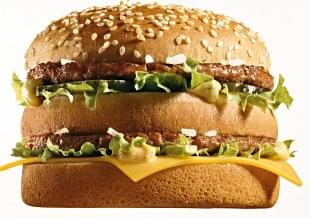Big Mac index: forint is undervalued
The currency of Venezuela is almost 80 percent overvalued, while the yen is undervalued by 40 percent, at least when we consider how much a Big Mac costs in these countries in comparison to the United States. According to the Economist, the forint is undervalued by almost 20 percent, and during the years of the crisis undervaluation continued to grow.

The Big Mac Index is based on the theory of purchasing-power parity, which says that exchange rates should eventually adjust to make the price of a basket of goods the same in each country. Our basket contains just one item: the Big Mac hamburger. It works by calculating the exchange rate that would leave a Big Mac costing the same in each country.
For example: at current exchange rates a Big Mac, which sells for USD 4.33 in America, costs just USD 2.29 (75 roubles) in Russia, whereas in Brazil it sells for a sliver under USD 5 (10 reals). So the dollar buys a lot of burger in Russia, signalling that the rouble is cheap and the real rather pricey. (Source: The Economist)
The base for the current comparison was July 2007. The shift in the Hungarian currency’s position is less exciting, as the numbers largely reflect the HUF’s nominal depreciation. The HUF was only moderately undervalued in the summer of 2007, while the index climbed to around 20 percent. (Portfolio.hu)
Related news
Related news
How does the forint exchange rate affect consumer prices?
🎧 Hallgasd a cikket: Lejátszás Szünet Folytatás Leállítás Nyelv: Auto…
Read more >From ham to egg dye – comprehensive Nébih inspection continues until Easter
🎧 Hallgasd a cikket: Lejátszás Szünet Folytatás Leállítás Nyelv: Auto…
Read more >NGM: Hungarian micro and small enterprises can apply for site development under more flexible conditions
🎧 Hallgasd a cikket: Lejátszás Szünet Folytatás Leállítás Nyelv: Auto…
Read more >





